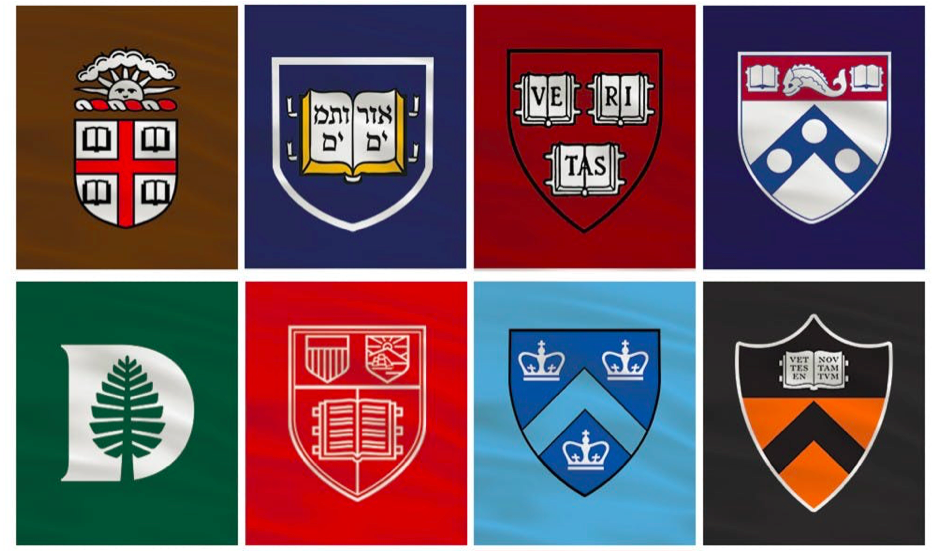 Cornell University in Ithaca, New York has introduced a new essay prompt that all first-year applicants must respond to in order to be considered for Cornell’s undergraduate Class of 2029.
Cornell University in Ithaca, New York has introduced a new essay prompt that all first-year applicants must respond to in order to be considered for Cornell’s undergraduate Class of 2029.
Regardless of the undergraduate school at Cornell applied to, all first-year applicants during the 2024-2025 admissions cycle are now required to write up to 350 words in response to this prompt:
We all contribute to, and are influenced by, the communities that are meaningful to us. Share how you’ve been shaped by one of the communities you belong to. Remember that this essay is about you and your lived experience. Define community in the way that is most meaningful to you. Some examples of community you might choose from are: family, school, shared interest, virtual, local, global, cultural.
This is a more streamlined prompt than one that appeared last admissions cycle, when, in order to become a member of Cornell’s undergraduate Class of 2028, applicants had to respond to the following now-discontinued prompt in up to 350 words:
In the aftermath of the U.S. Civil War, Ezra Cornell wrote, “I would found an institution where any person can find instruction in any study.” For over 150 years, Cornell University has remained deeply committed to Ezra’s vision. Explain how your life experiences will help inform your contributions to a learning community devoted to “…any person…any study.” We encourage you to think broadly about your life experiences, including how local (e.g., family, school, neighborhood) or global communities you’ve been part of have helped shape your perspective.
Last year, the focus was on “life experiences” that applicants would harness in order to contribute to the Cornell learning community. This year, the focus is squarely on one community the applicant has been “shaped by” and specifically how.
Beyond the required prompt, depending on the school at Cornell a first-year applicant is applying to, he or she will also have to respond to one or more of the following additional essay prompts:
College of Agriculture and Life Sciences
Required: By applying to Cornell’s College of Agriculture of Life Sciences (CALS), you are also applying for direct entry into one of our 20+ majors. From here, you would be part of a community dedicated to purpose-driven science; working within your major and across disciplines to tackle the complex challenges of our time.
Why are you drawn to studying the major you have selected and specifically, why do you want to pursue this major at Cornell CALS? You should share how your current interests, related experiences, and/or goals influenced your choice. (500-word limit)
Instructions: The optional short-answer questions invite you to share additional information about your background, interests, and experiences as they relate to aspects of the Cornell CALS mission. The content of any responses submitted will be included in the holistic review of your application (which is also the case for any optional additional information submitted as part of your Common Application or uploaded through your Cornell Application Portal once you’ve applied).
Optional: At Cornell CALS, we aim to leave the world better than we found it, so we seek out those who are passionate about serving the public good. Please elaborate on an experience where you were able to have a meaningful impact on people, a community, and/or an environment of importance to you. (100-word limit)
Optional: Cornell CALS is dedicated to purpose-driven study of the agricultural, life, environmental, and social sciences and welcomes students with interests that span a wide variety of disciplines. Given our agricultural history and commitment to educating the next generation of agriculturalists, please share if you have a background or interest in agriculture, regardless of your intended major. An “agricultural entity” for the purpose of this question is defined as cultivating soil, growing crops, and raising livestock (e.g., farm, ranch, greenhouse, vineyard, etc.).
Select all that apply:
- A primary source of income for my parent/guardian(s) comes from ownership of or employment by an agricultural entity.
- My extended family owns or operates an agricultural entity.
- I have experience working in an agricultural entity.
- I have interest in pursuing a career in an agricultural entity.
Please feel free to share additional details (optional). (100-word limit)
The above prompts for CALS applicants are brand new this year.
College of Architecture, Art, and Planning
How do your interests directly connect with your intended major at the College of Architecture, Art, and Planning (AAP)? Why architecture (B.Arch), art (BFA), or urban and regional studies (URS)? B. Arch applicants, please provide an example of how a creative project or passion sparks your motivation to pursue a 5-year professional degree program. BFA applicants may want to to consider how they could integrate a range of interests and available resources at Cornell into a coherent art practice. URS students may want to emphasize their enthusiasm and depth of interest in the study of urban and regional issues. (650 word limit)
The above prompt for Architecture, Art, and Planning applicants is the same as that which existed last year.
College of Arts & Sciences
At the College of Arts and Sciences, curiosity will be your guide. Discuss how your passion for learning is shaping your academic journey, and what areas of study or majors excite you and why. Your response should convey how your interests align with the College, and how you would take advantage of the opportunities and curriculum in Arts and Sciences. (650 word limit)
The above prompt for Arts & Sciences applicants is the same as that which existed last year.
Cornell Jeb E. Brooks School of Public Policy
Why are you drawn to studying public policy? Drawing on your experiences, tell us about why you are interested in your chosen major and how attending the Brooks School will help you achieve your life goals. (650 word limit)
The above prompt for Public Policy applicants is the same as that which existed last year.
Cornell SC Johnson College of Business
What kind of a business student are you? Using your personal, academic, or volunteer/work experiences, describe the topics or issues that you care about and why they are important to you. Your response should convey how your interests align with the school to which you are applying within the Cornell SC Johnson College of Business (Charles H. Dyson School of Applied Economics and Management or the Peter and Stephanie Nolan School of Hotel Administration). (650 word limit)
The above prompt for Business applicants is the same as that which existed last year.
College of Engineering
Instructions: All engineering applicants are required to write two long essays and four short essays.
Long Essay Responses (200 word limit)
- Question 1: Fundamentally, engineering is the application of math, science, and technology to solve complex problems. Why do you want to study engineering?
- Question 2: Why do you think you would love to study at Cornell Engineering?
Short Answer Responses (100 word limit)
- Question 1: What brings you joy?
- Question 2: What do you believe you will contribute to the Cornell Engineering community beyond what you’ve already detailed in your application? What unique voice will you bring?
- Question 3: What is one activity, club, team, organization, work/volunteer experience or family responsibility that is especially meaningful to you? Please briefly tell us about its significance for you.
- Question 4: What is one award you have received or achievement you have attained that has meant the most to you? Please briefly describe its importance to you.
The above writing requirements for Engineering applicants are brand new this year.
College of Human Ecology
How has your decision to apply to the College of Human Ecology (CHE) been shaped and informed by your related experiences? How will what you learn through CHE and your chosen major impact your goals and plans for the future? Your response should demonstrate how your interests and aspirations align with CHE’s programs and mission. (Refer to our essay application tips before you begin.) (650 word limit)
The above prompt is a reworded version of a similar one that was required of Human Ecology applicants last year.
School of Industrial and Labor Relations
Using your personal, academic, or volunteer/work experiences, describe the topics or issues that you care about and why they are important to you. Your response should show us that your interests align with the ILR School. (650 word limit)
The above prompt for ILR applicants is the same as that which existed last year.
—-
For students applying to enroll at Cornell in fall 2025, Cornell is test-recommended or score-free depending on the college/school the student is applying to. All applicants must also complete the Common App’s main essay in order to be fully considered for admission into Cornell’s Class of 2029.
 Cornell University in Ithaca, New York is the third Ivy League college to officially release its 2023-2024 supplemental essay prompts for first-year applicants.
Cornell University in Ithaca, New York is the third Ivy League college to officially release its 2023-2024 supplemental essay prompts for first-year applicants. 

 So much of what you read, watch, or hear in the media is there to make you feel like it’s impossible to get into Brown, Columbia, Cornell, Dartmouth, Harvard, Penn, Princeton, and Yale without cheating your way in or using some unsavory connection to worm your way in.
So much of what you read, watch, or hear in the media is there to make you feel like it’s impossible to get into Brown, Columbia, Cornell, Dartmouth, Harvard, Penn, Princeton, and Yale without cheating your way in or using some unsavory connection to worm your way in.